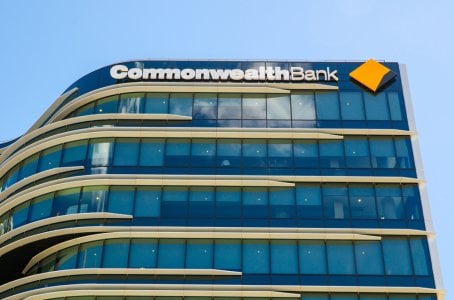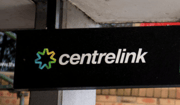Small business accuses Commbank of making cash ‘actively difficult’ to use
By
Seia Ibanez
- Replies 34
In an age where digital transactions are becoming the norm, the push towards a cashless society has sparked a fiery debate in Queensland.
Street Feast, a small business known for its vibrant night-time food festivals and markets, became the centre of controversy when it announced a cashless entry policy for its events.
This decision has raised questions about banks' role in transitioning to cashless operations and the challenges small businesses face in adapting to new financial landscapes.
Street Feast, a staple in the Queensland community since January, charges a $2 entry fee per person.
With events spread across the state and northern NSW, including regional areas like Goondiwindi and Kingaroy, the business often handles a significant amount of cash.
Phoenix Diamond, the Sales and Relationships Executive at Street Feast, expressed safety concerns for staff members tasked with managing thousands of dollars in notes and coins.
‘That creates safety concerns for the staff members and owners, to be left with that much cash,’ he said.
The situation escalated when the company's bank, Commonwealth Bank of Australia (CommBank), was accused of making it 'actively difficult' to deal in cash.
This logistical nightmare prompted Street Feast to switch to a card-only policy, a move that was met with immediate backlash from the community.
One commented, 'Cash is king! Use it or lose it.’
‘I was all in until you stipulated “card only”. That’s a family of five who won’t be attending,’ another said.
‘I would also like to know why it is a card-only entry. I think that it is totally unfair, and as a business/event, it should be illegal to refuse legal tender,’ a third added.
The sentiment was so strong that Street Feast announced the return of cash payments at their gates.
‘We’ve heard you—loudly,’ a post on social media read.
‘We are bringing cash back at the gate to all our events. Please have the correct change.’
The controversy didn't end there. At one event, ‘protesters came out’, with some community members accusing Street Feast of being ‘part of a problem helping banks push cashless agenda’.
Diamond mentioned the ‘absolute uproar’ from the community also involved instances where staff were ‘abused’ at events by individuals who were ‘clearly upset’ about not being able to use cash for entry.
‘We had to call the police because one bloke was abusing staff, telling us we were responsible for the new world order,’ Diamond said.
In the face of such turmoil, Diamond pointed the finger at CommBank, criticising the bank for the difficulties in handling cash transactions.
‘For us, it was just an issue dealing with the banks—Commonwealth Bank specifically,’ he said.
‘There was one day in which the owner travelled to six different branches and the coin deposit system was down. It became a logistical nightmare.’
‘I don’t blame the reaction from the public. It was understandable. We understand their frustration, we share their frustration.’
‘But banks are making it impossible to do business with (cash)... It almost makes it feel like there’s a push to make it hard for businesses to operate.’
The bank, however, defended its services, stating that its coin deposit machines were operational 98 per cent of the time and emphasising the importance of cash in Australia's economy.
‘As we’ve said before, cash is and will remain an important part of Australia’s economy,’ a CBA spokesperson said in a statement.
‘In addition to the largest branch and ATM network in Australia, our business customers with coin handling requirements have access to over 850 designated self-service coin deposit machines.’
 Have you encountered similar situations where cash was refused? Do you prefer cash transactions, or are you comfortable with the shift towards digital payments? Share your experiences and opinions in the comments below.
Have you encountered similar situations where cash was refused? Do you prefer cash transactions, or are you comfortable with the shift towards digital payments? Share your experiences and opinions in the comments below.
Street Feast, a small business known for its vibrant night-time food festivals and markets, became the centre of controversy when it announced a cashless entry policy for its events.
This decision has raised questions about banks' role in transitioning to cashless operations and the challenges small businesses face in adapting to new financial landscapes.
Street Feast, a staple in the Queensland community since January, charges a $2 entry fee per person.
With events spread across the state and northern NSW, including regional areas like Goondiwindi and Kingaroy, the business often handles a significant amount of cash.
Phoenix Diamond, the Sales and Relationships Executive at Street Feast, expressed safety concerns for staff members tasked with managing thousands of dollars in notes and coins.
‘That creates safety concerns for the staff members and owners, to be left with that much cash,’ he said.
The situation escalated when the company's bank, Commonwealth Bank of Australia (CommBank), was accused of making it 'actively difficult' to deal in cash.
This logistical nightmare prompted Street Feast to switch to a card-only policy, a move that was met with immediate backlash from the community.
One commented, 'Cash is king! Use it or lose it.’
‘I was all in until you stipulated “card only”. That’s a family of five who won’t be attending,’ another said.
‘I would also like to know why it is a card-only entry. I think that it is totally unfair, and as a business/event, it should be illegal to refuse legal tender,’ a third added.
The sentiment was so strong that Street Feast announced the return of cash payments at their gates.
‘We’ve heard you—loudly,’ a post on social media read.
‘We are bringing cash back at the gate to all our events. Please have the correct change.’
The controversy didn't end there. At one event, ‘protesters came out’, with some community members accusing Street Feast of being ‘part of a problem helping banks push cashless agenda’.
Diamond mentioned the ‘absolute uproar’ from the community also involved instances where staff were ‘abused’ at events by individuals who were ‘clearly upset’ about not being able to use cash for entry.
‘We had to call the police because one bloke was abusing staff, telling us we were responsible for the new world order,’ Diamond said.
In the face of such turmoil, Diamond pointed the finger at CommBank, criticising the bank for the difficulties in handling cash transactions.
‘For us, it was just an issue dealing with the banks—Commonwealth Bank specifically,’ he said.
‘There was one day in which the owner travelled to six different branches and the coin deposit system was down. It became a logistical nightmare.’
‘I don’t blame the reaction from the public. It was understandable. We understand their frustration, we share their frustration.’
‘But banks are making it impossible to do business with (cash)... It almost makes it feel like there’s a push to make it hard for businesses to operate.’
The bank, however, defended its services, stating that its coin deposit machines were operational 98 per cent of the time and emphasising the importance of cash in Australia's economy.
‘As we’ve said before, cash is and will remain an important part of Australia’s economy,’ a CBA spokesperson said in a statement.
‘In addition to the largest branch and ATM network in Australia, our business customers with coin handling requirements have access to over 850 designated self-service coin deposit machines.’
Key Takeaways
- A Queensland small business, Street Feast, faced an uproar after announcing cashless payment only at their events due to difficulties depositing coins at Commonwealth Bank branches.
- Street Feast hosts night-time food festivals and markets, where handling large amounts of cash posed safety concerns for staff.
- The community reacted strongly against the card-only policy, with some attendees refusing to attend and others accusing the business of supporting a cashless agenda.
- After significant backlash, Street Feast decided to once again accept cash at their events while expressing frustration at the banking challenges imposed by the Commonwealth Bank.








